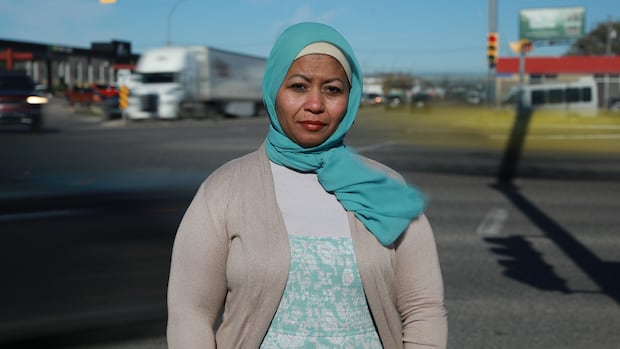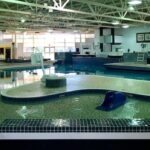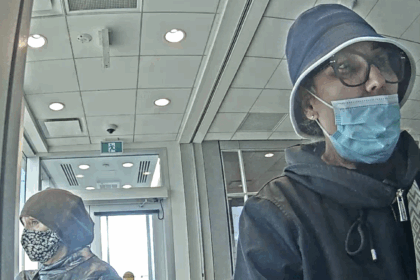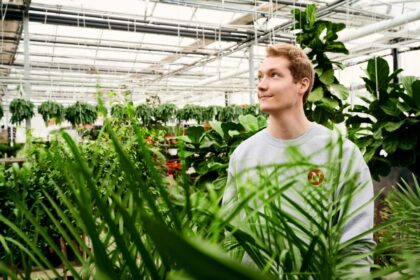Saskatchewan·First PersonMarwa Abu Eita used to spend 13-hour days rushing from one task to the next until a vehicle plowed into her at a busy intersection. Her recovery helped her embrace a slower pace of life.My recovery helped me embrace a slower pace of lifeMarwa Abu Eita · for CBC First Person · Posted: Nov 09, 2025 4:00 AM EST | Last Updated: 3 hours agoListen to this articleEstimated 5 minutesThe audio version of this article is generated by text-to-speech, a technology based on artificial intelligence.Life always used to be a rush for Marwa Abu Eita until a car crash forced her to slow down. (Kirk Fraser/CBC)This First Person article is the experience of Marwa Abu Eita, who moved from Dubai to Regina in 2023. For more information about CBC’s First Person stories, please see the FAQ. I saw the car coming. Locking eyes with the driver as I walked across an intersection, I knew he was not going to stop. He was coming right at me.Was this really the end? I still had a lot to do in my life. Every day in Dubai was a blur of responsibilities for me. I worked from 8 a.m. to 9 p.m., with only two hours of break — barely enough time to pick up my three-month-old son from daycare and drive him home to spend the afternoon in the care of his grandfather. I was constantly rushing, constantly sacrificing to build a life for myself and my family. I told myself it was temporary, that I was doing what I had to do. But I never stopped to ask what it was costing me until that day I was hit by a vehicle.I had just parked my car in my usual spot across from my workplace after dropping my baby at daycare. A car had already stopped to let me cross, and I stepped forward, smiling in gratitude for the small kindness. Then, in a flash, I noticed another car swerving into the next lane to overtake, with no indication it was slowing down.I froze for a split second, caught between instinct and disbelief. And then — impact.The force hit me like a wall. My feet left the ground. I was airborne, flying through the air, weightless and helpless, before crashing down onto the pavement. Pain exploded through my body. I couldn’t move. I couldn’t speak.I could hear people screaming. Others were shouting, “Cover her! Cover her!” — as if I was already gone. I wanted to scream, “I’m not dead! Don’t cover me!”I wanted to lift my hand, turn my head, anything to show I was still alive. But I couldn’t. My body wouldn’t respond. I was trapped inside it, fully conscious, fully aware and completely still.Abu Eita found that slowing down her life enabled her to be a better mother to her son, Mohamad Mostafa, and daughter, Myriam Mostafa. (Submitted by Marwa Abu Eita)That moment changed everything.Recovery was slow and confining. My leg was in a cast, and I couldn’t walk or stand. I spent long days at home, resting, healing and adjusting to a new rhythm.But in that stillness, something beautiful happened. I spent more time with my son than I ever had before. I was there for his smiles, his cries, his naps and his tiny milestones. I held him close, read to him, sang to him and watched him grow. That time, though born from pain, became a gift.I learned to be present. To listen to my body. To honour the quiet moments. When I moved to Canada, I was drawn to the slower pace, the space to breathe and the promise of work-life balance. Regina, in particular, offered something I hadn’t known I needed: quiet streets, gentle mornings and a culture that values time with family over endless hours at work.Now, my son and daughter are grown up and navigating university life. I often find myself reminding them that life isn’t just about achievements and deadlines.Abu Eita found the move to Canada and embracing a slower pace of life in Regina suited her newfound appreciation of the gift of time. (Submitted by Marwa Abu Eita)It’s about noticing the small things, appreciating the quiet moments and approving of the life they’re living as it unfolds. I hope they carry that lesson with them, not because they have to learn it the hard way, but because I already did. I’ve learned to slow down. To notice things. The warmth of sunlight on my skin. The shimmering snow in the winter nights. The sound of birds in the morning.I recall the kindness of strangers who stopped to help me. I’ve learned that survival isn’t just physical; it’s emotional and spiritual. It’s choosing to keep going, even when everything hurts.And most of all, I’ve learned that life is not guaranteed. It’s a gift.I carry the memory of that moment with me — not as a source of fear, but as a reminder of how far I’ve come. From the chaos of that street in Dubai to the quiet snowfall in Regina, my life has shifted in ways I never imagined. I’ve learned that healing is really about rediscovering joy, reclaiming time, and choosing peace. I no longer measure my worth by how much I can do in a day. I measure it by how deeply I live each moment.Every day I wake up, I’m reminded that life gave me a second chance. And I intend to live it fully, slowly, and gratefully.Do you have a compelling personal story that can bring understanding or help others? We want to hear from you. Email sask-first-person-grp@cbc.ca to learn more. ABOUT THE AUTHORMarwa Abu Eita was born in Cairo. She is an architect with more than 20 years of experience and works as a designer in an architectural firm in Regina. She is passionate about reading and writing, and likes swimming in her free time.
Life was a constant rush until the day a car hit me. It was the wake-up call I needed











